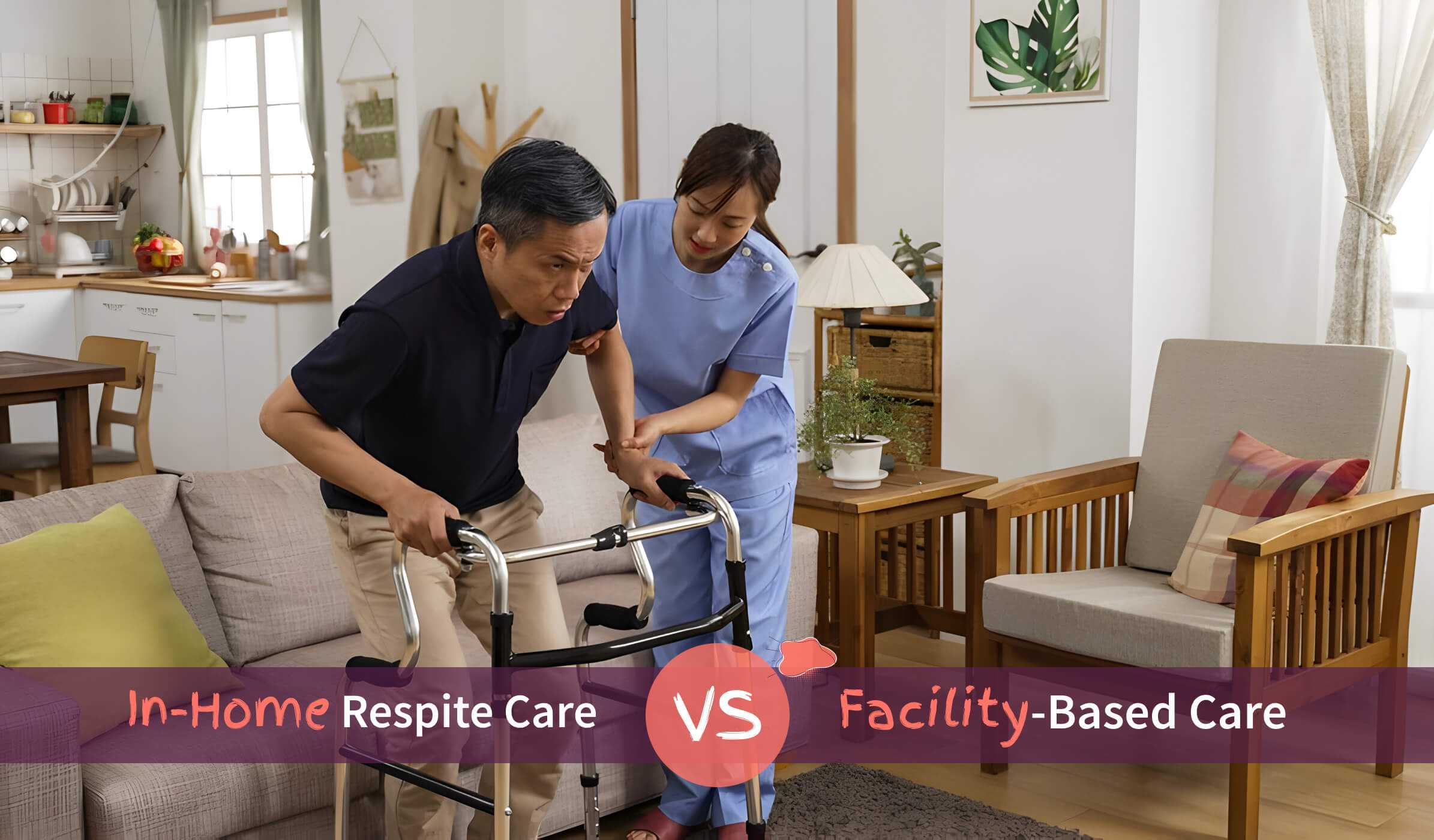In-Home Respite Care vs. Facility-Based Care: Pros and Cons
May 15, 2025
|By Careassure
|6 min read
Table of Contents

A temporary caregiving service, respite care, is intended to give main caregivers a much-needed break from their responsibilities. You can receive this service in the convenience of your own home or in a facility that offers respite care, such as an assisted living complex. One of the primary goals is to provide respite to the family caregiver by enabling them to devote time to attending to their own needs, attending support groups, or simply resting. When the days and nights become a continuous continuum of care for a loved one, respite care becomes a crucial service for other family members who are providing care. In this blog, we investigate the benefits and drawbacks of in-home respite care and compare it to options provided in a facility setting.
What is in-home care?
In-home care is a form of care delivered to a patient in the familiar surroundings of their own home. Individuals who require assistance with daily life activities, such as bathing, dressing, and meal preparation, are the perfect candidates for this. It is also possible for home care to involve medical care, such as the administration of medication and the treatment of wounds. Recruiting home care providers through an agency is possible, or they may come as independent contractors.
| Pros of in-Home Care | Cons of in-Home Care |
|---|---|
| Your loved one can receive all the Care they require | Higher responsibility may result in resentment and strained relationships |
| The Family can constantly be informed about all the services being offered | Home modifications are required |
| The client and their family can maintain their freedom | High levels of social isolation can lead to worry and sadness |
| In-home care is associated with a quicker recovery | Caregivers are often responsible for errands, and other responsibilities |
| It is the economical choice | It is the economical choice |
Pros of in-home respite care
Here are the advantages of choosing in-home respite care
- From the convenience of their home, your loved one can receive all the care they require.
![icon]()
- If a member of your family is in the process of being discharged from the hospital, in-home care services allow you to be more time-conscious and hasten the process of reintroducing your loved one to their home environment.
![icon]()
- In-home care is an excellent option for family members who wish to be fully involved in providing care for their loved ones. The family can constantly be informed about all the services being offered. In addition to significantly contributing to administering your family member's medication, you can select the hours or days required for them.
![icon]()
- The client and their family can maintain their freedom, one of the most significant advantages of receiving care in the comfort of their home. They can remain in the comfort of their own home.
![icon]()
- It is not a cause for concern that in-home care may restrict visitors, relatives, friends, and other outsiders. The freedom to have anybody you choose in the house with a family member is yours to exercise.
![icon]()
- Research indicates that in-home care is associated with a quicker recovery, which is something to keep in mind if you consider in-home care as a form of treatment for your loved one. The fact that your family member receives one-on-one care during the entire shift is one of the numerous reasons for this.
![icon]()
- According to the required hours, Caring for a patient in their home may be the most economical choice.
![icon]()
- Generally, the quality of life is higher when you live in your home. Facilities and institutions can bring about a decrease in morale and overall quality of life, which then leads to a decline.
![icon]()
Conclusion
Short-term disability respite care can help people with disabilities and their families live better lives in the long run. While respite care gives caregivers regular breaks, it can also help lower the stress and burnout that can come with long-term care. This can improve the physical and mental health of both the disabled person and the people who care for them. Respite care can also help a person with a disability live a better life by giving them time to do things they enjoy. As it has its benefits, so do its drawbacks; read about the pros and cons of respite care to learn more.
Respite care services delivered at Care Assure comes with the utmost attention to detail in every aspect of the service. Those who are only staying with us for a short period have a sense of complete and utter belonging. Contact us if you have any questions concerning our respite care services.
Frequently Asked Questions (FAQs)
The individual's preferences, care requirements, and the caregiver's desire for respite are all important considerations. In-home respite care may be the ideal option for individuals who prioritise independence and familiarity. On the other hand, facility-based care may be more suitable for individuals who require more extensive supervision or social engagement.





